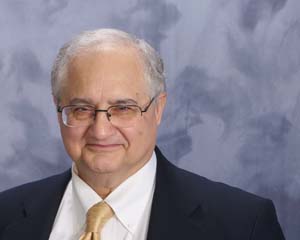Introduction to Distance Education: Theorists and Theories: Otto Peters
By Dr. Farhad (Fred) Saba
Founder, Distance-Educator.com
Born in Berlin in 1926, Dr. Otto Peters, is Professor emeritus of the FernUniversität (Distance Teaching University) in Germany. For 10 years he had been its Founding Rector, and for 17 years he held a chair in a discipline called, Methodology of DistanceTeaching in the same institution. In this capacity he conducted an extensive research project: University Study for Persons who have to Work for a Living” (‘Studium neben dem Beruf’). From 1969 – 1974 he was engaged in comparative distance teaching research at the German Institute for Distance Education at the University of Tübingen. Over the years, Dr. Peters has made numerous contributions to the conceptual development of distance education. However, his writings on the industrial nature of distance education demonstrated the contrast of teaching and learning at distance with teaching in a classroom. He characterized distance teaching as a standardized mass system of education in contrast to face-to-face education that is craft oriented as each instructional session is produced by one person at the time of its presentation. class lectures, even on the same subject by the same instructor differ from one class presentation to another. As we are making a turn from the modern to the postmodern, Peters’ theory of distance education as an industrial endeavor has found new importance to understand the current status of the field and how it may evolve in the future.
On the concept of industrialized form of education, Peters (1993) wrote:
“Implicitly, it underlines the fact that distance study must be carefully pre-planned, prepared and organized, and that there is a division of labor, a growing use of technical equipment, and the necessity of formalized evaluation. People become aware that these and other features of distance study are the same as those that can be found in an industrialized production process. Explicitly, these ideas are expressed by using the image of a teacher in the classroom working like a craftsman, as opposed to a teacher being a part of a complicated teaching-learning system organized like an industrialized process. The catchphrase ‘industrialized from of instruction’ helps to recognize structural elements which are typical for distance study.” (Page 16).
To illustrate the industrial characteristics of distance education, Peters applied concepts from business management literature and developed the following categories:
- Rationalization– Methodical measure that are applied rationally with the purpose achieving output with a comparatively lower input of power, time and money.
- The Division of Labor– Materials required for development of the distance study course can be assembled by subject matter experts, and “educationists” and experienced practitioners who can develop course materials and facilitate course presentations.
- Mechanization– Distance teaching uses modern means of communication and electronic data processing.
- Assembly Line– In the development of the distance study course the manuscript is passed from one area of responsibility to another and specific changes are made at each stage.
- Mass Production – Instructional materials are mass produced and delivered to learners.
- Preparatory Work– In a production situation where a division of labor prevails, economy, quality, and speed of the work processes depend on the right type of preparation.
- Planning– An essential element of preparation is planning, which needs to be far more comprehensive and detailed than industrial manufacturing process than in manual production, as it requires the coordination of many interacting factors.
- Organization- In distance study there is an immediate connection between the effectiveness of the teaching method and the rational organization.
- Scientific Control Methods– With its efforts to measure the success of a teaching method, distance teaching has introduced a hitherto neglected aspect into university teaching.
- Formalization– On account of the division of labor and mechanization in the manufacturing process there is a much greater need to predetermine the various phases formally than in manual labor.
- Standardization– It is characteristics of production situation involving division of labor and high technology that manufacture is limited to a number of types of one product, in order to make these more suitable for their purpose.
- Change Function– Whereas it was typical for the craftsman to plan the production of a piece of work as well as acquire the necessary materials, carry out the work and finally sell the finished piece of work himself, industrialization led to a more market functional differentiation.
- Objectification– The more the production process is determined by machines and organizational principles, the more it loses its subjective element which used to determine the craftsmen’s work to a considerable degree.
- Concentration and Centralization– The investment required for mechanized mass production involving division of labor has led to large industrial concerns with a concentration of capital, an frequently centralized administration, and a market that is not seldom monopolized.
These Industrial characteristics of distance education explicate the current lack of synchronization between faculty in higher education and university administrators. Faculty work as solo workers in a craft-oriented profession that has no division of labor, standardization of routine tasks, or workflows. In contrast, university administrators work in an industrial workflow to provide mass education to hundreds of thousands of enrollees in their respective campuses.
As personal technologies of communication, such as social media, became ubiquitous and faculty will be able to present mass personalized instruction to the learners with some level of standardization, it will be interesting to see how the dynamic between faculty and administrators change in the postmodern era.
REFERENCE
Keegan, D. (Ed). (1994). Otto Peters on distance education: The industrialization of teaching and learning. London, UK: Routledge.
Peters, O. (1993). Understanding distance education. In K. Harry, M. John, and D. Keegan (Eds.). Distance education: New perspectives. (10-18). London, UK: Routledge.








